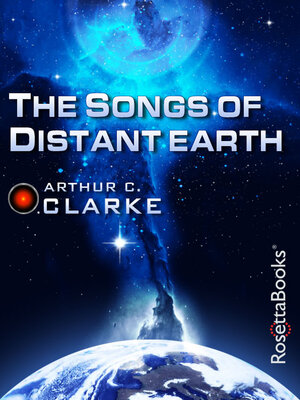
Sign up to save your library
With an OverDrive account, you can save your favorite libraries for at-a-glance information about availability. Find out more about OverDrive accounts.
Find this title in Libby, the library reading app by OverDrive.



Search for a digital library with this title
Title found at these libraries:
| Library Name | Distance |
|---|---|
| Loading... |
Earth refugees threaten a peaceful space settlement in this influential novel from the Golden Age science fiction author of 2001: A Space Odyssey.
More than two thousand years in the future, a small human colony thrives on the ocean paradise of Thalassa—sent there centuries ago to continue the human race before Earth’s destruction.
Thalassa’s resources are vast—and the human colony has lived a bucolic life there. But their existence is threatened when the spaceship Magellan arrives on their world—carrying one million refugees from Earth, fleeing the dying planet.
Reputed to be Arthur C. Clarke’s favorite novel, The Songs of Distant Earth addresses several fascinating scientific questions unresolved in their time—including the question of why so few neutrinos from the sun have been measured on Earth. In addition, Clarke presents an inventive depiction of the use of vacuum energy to power spacecraft—and the technical logistics of space travel near the speed of light.
“Clarke’s simple, musical style never falters in this sobering yet far from bleak commentary on humanity’s longing for the stars. Highly recommended.” —Library Journal
More than two thousand years in the future, a small human colony thrives on the ocean paradise of Thalassa—sent there centuries ago to continue the human race before Earth’s destruction.
Thalassa’s resources are vast—and the human colony has lived a bucolic life there. But their existence is threatened when the spaceship Magellan arrives on their world—carrying one million refugees from Earth, fleeing the dying planet.
Reputed to be Arthur C. Clarke’s favorite novel, The Songs of Distant Earth addresses several fascinating scientific questions unresolved in their time—including the question of why so few neutrinos from the sun have been measured on Earth. In addition, Clarke presents an inventive depiction of the use of vacuum energy to power spacecraft—and the technical logistics of space travel near the speed of light.
“Clarke’s simple, musical style never falters in this sobering yet far from bleak commentary on humanity’s longing for the stars. Highly recommended.” —Library Journal







